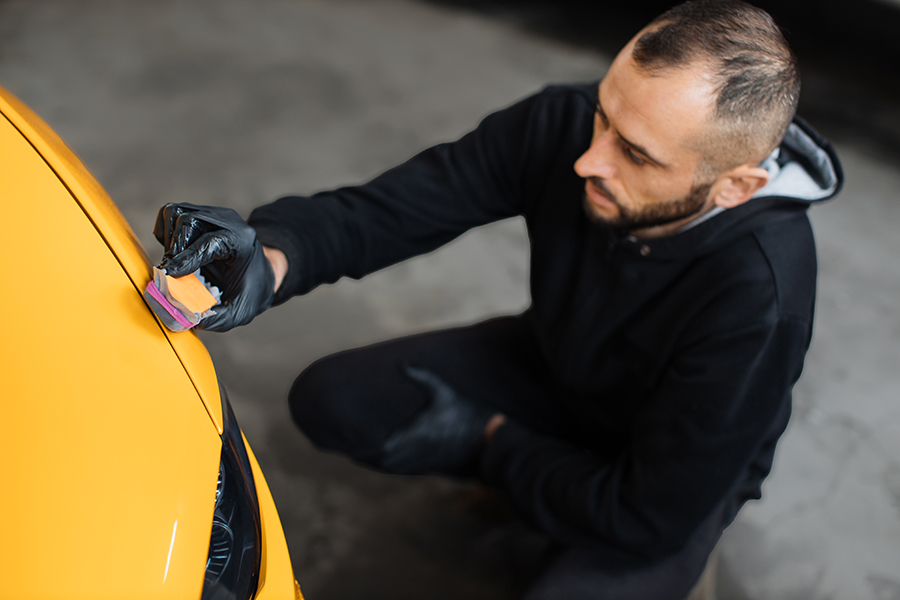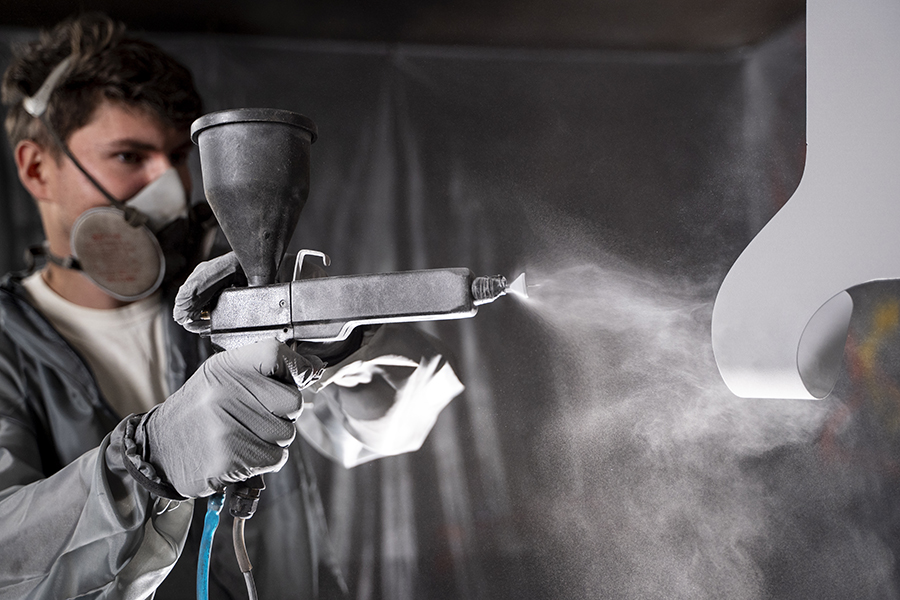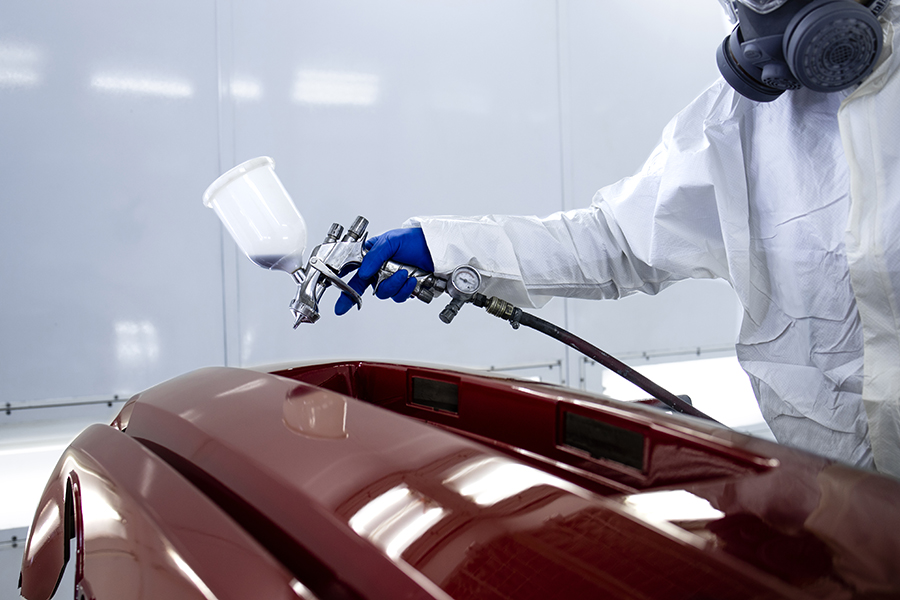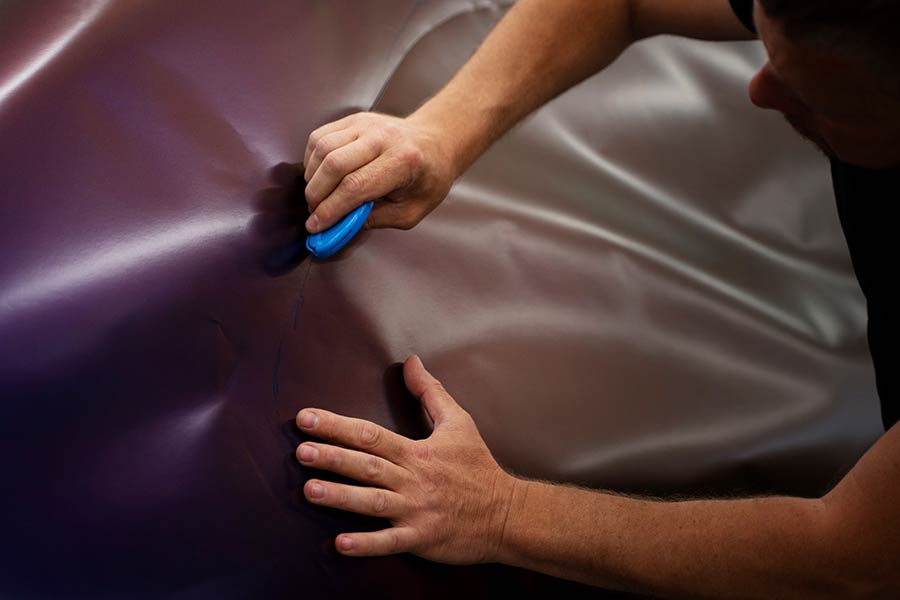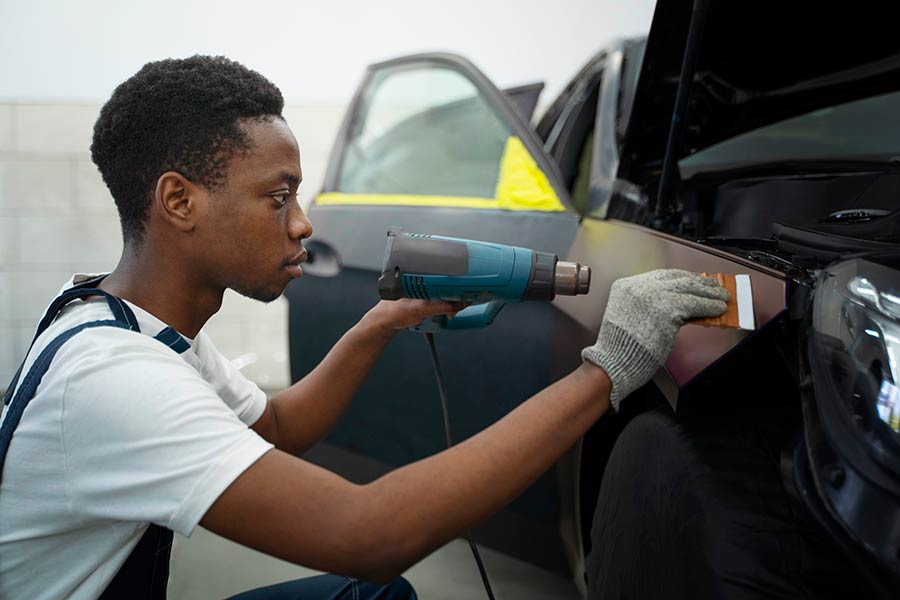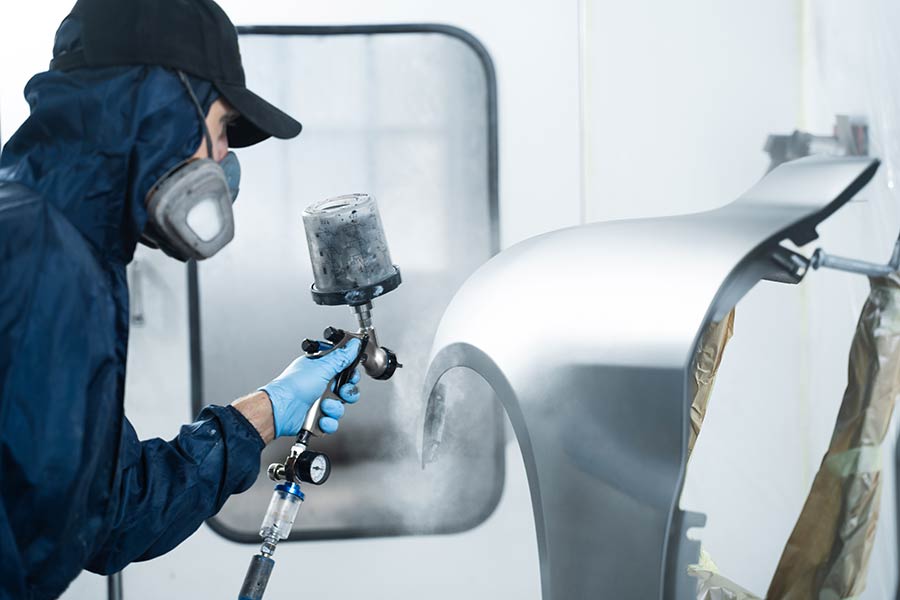Did you know that nearly 77% of car owners notice a paint scratch within the first year? Scratches are like pesky mosquitoes, always showing up uninvited. Fixing them doesn't have to be a hassle. Whether it's a tiny nick or a noticeable streak, tackling these blemishes can save your ride's look and value. We'll dive into easy steps for DIY paint scratch car repair so you can keep your car looking sharp without breaking the bank. Ready to roll up those sleeves and get started? Let’s make your car shine again!
Key Takeaways
- Know Your Scratch: Identify the type of scratch on your car before choosing a repair method.
- DIY Techniques: Use simple tools like toothpaste or scratch remover kits for minor scratches.
- Product Options: Consider using touch-up paint or scratch pens for quick fixes.
- Cost Matters: Weigh DIY costs against professional repair expenses to decide the best route.
- Regular Checks: Regularly inspect your car to catch scratches early and prevent rust.
- Protect Your Car: Use car covers or park in garages to minimize future scratches.
Understanding Car Scratches
Types of Scratches
Car scratches come in different types. Clear coat scratches are the most common. They only damage the surface. Paint scratches go deeper. They reach the color layer of the car. Sometimes, scratches can be very deep. These reach the primer or even the metal beneath.
Causes of Scratches
Scratches happen for many reasons. Accidental contact with sharp objects is a frequent cause. Environmental factors like tree branches can scratch cars too. Car washes sometimes leave marks on cars. Parking lot mishaps often result in scratches.
Assess Damage Severity
You can assess scratch severity by touch or visual inspection. Check if the scratch affects only the clear coat. If it feels smooth, it might be shallow. Deeper scratches may expose metal or cause rust. Look closely to see if any metal shows.
Scratch Repair Techniques
DIY Methods
Toothpaste can help with minor surface scratches. It's easy to use. Just apply a small amount to a soft cloth. Rub it gently on the scratch in circular motions. This can smooth out light marks.
For small paint damage, scratch repair pens work well. They are simple to apply and offer quick fixes. These pens fill in the scratch and blend with the car's color.
Rubbing compound is useful for more noticeable scratches. It works by removing a thin layer of paint around the scratch. Apply it with a soft cloth and buff the area until the scratch fades.
Professional Services
Deep scratches often need professional assessment. Experts can tell if a scratch is too deep for DIY methods. They have the tools to fix it properly.
Body shop services provide comprehensive repairs. They can restore your car's appearance like new. These shops handle everything from minor touch-ups to full repainting.
Mobile repair options offer convenience. Professionals come to your location to fix scratches. This saves time and effort, especially for busy schedules.
Choosing Right Products
Select products based on scratch depth and type. Light scratches need different solutions than deep ones. It's important to choose wisely.
Look for user-friendly application methods. Some products are easier to use than others. Consider this when making a choice.
Ensure compatibility with your car's paint color. Mismatched colors can make scratches more noticeable. Always check product labels for color matching information.
Scratch Repair Products
Popular Scratch Removers
Many people choose Meguiar’s or Turtle Wax for scratch repair. These brands have top-rated products. Customers often praise their effectiveness in reviews. Meguiar's is known for deep scratches, while Turtle Wax works well on light ones. It's important to pick the right product for your scratch type. Some are better for clear coat scratches, others for paint.
Effectiveness of Products
Product claims can differ from real results. Some promise instant fixes but don't last long. Others might need more effort but offer lasting repairs. It's crucial to consider how long the repair will hold up after application. Most users find visible improvements with proper use. Ease of use also matters; simpler products save time and effort.
Product Application Tips
Always follow the manufacturer's instructions closely. This ensures the best results. Clean and dry the scratched area first. Dirt can affect the repair quality. Use tools like microfiber cloths for applying the product. They help spread it evenly without causing more damage.
Cost Considerations
DIY vs Professional Costs
Choosing between DIY kits and professional services can affect your wallet. DIY kits are often cheaper upfront. They might cost around $20 to $50. However, fixing scratches yourself may need multiple tries. This can add up quickly. On the other hand, professional repairs have higher initial costs, maybe $150 or more. Yet, they often provide long-term savings by doing it right the first time.
Factors Affecting Price
Several factors influence the price of scratch repair. The size and severity of the scratch play a big role. Small scratches cost less to fix than deep ones. If you choose a professional service, labor costs add up too. These can vary based on the shop's location. Urban areas might charge more due to higher demand and rent prices. Availability of repair shops in your area also affects prices.
Budget-Friendly Options
For those on a budget, consider these options. DIY kits work well for minor scratches and save money. Look for discount services or promotions at local shops. Some places offer deals during off-peak seasons. Prioritize essential repairs to keep costs manageable. Fixing only visible or problematic scratches can help stay within budget.
Final Remarks
You've got the skinny on dealing with those pesky car scratches. Whether you're diving into DIY repair or calling in the pros, understanding the ins and outs can save you a pretty penny. With the right products and techniques, your ride can look slick again without breaking the bank. It's all about finding what works best for you and your wheels.
Now, it's your turn to get hands-on or make that call. Don't let those scratches steal your car's thunder. Dive in, and give your vehicle the TLC it deserves. And hey, if you've got tips or stories from your own scratch repair adventures, share 'em! We're all ears. Keep your ride looking sharp and strut that car with pride. Go on, give it a whirl!
Frequently Asked Questions
What are common causes of car paint scratches?
Car paint scratches often come from minor accidents, parking lot mishaps, or stray shopping carts. Think of your car as a knight in shining armor; it's bound to get a few battle scars.
Can I fix car scratches myself?
Yes, you can! With the right tools and products, minor scratches are DIY-friendly. It's like making a smoothie—just follow the steps carefully.
What techniques work best for scratch repair?
Buffing and polishing are great for light scratches. For deeper ones, consider touch-up paint or kits. It's like choosing between a band-aid or stitches based on the cut.
Are scratch repair kits effective?
They can be! Kits work well for small to medium scratches. It's like using a first aid kit—handy for minor injuries but not for surgery.
How much does professional scratch repair cost?
Costs vary widely, from $50 to several hundred dollars. It's like dining out; it depends on the restaurant and the dish you choose.
What should I look for in scratch repair products?
Look for ease of use, effectiveness, and compatibility with your car's color. Think of it as picking the right tool for the job—like using a hammer for nails, not screws.
How can I prevent future scratches?
Park away from potential hazards and use car covers when possible. It's like giving your car an umbrella on rainy days—protective and smart.
